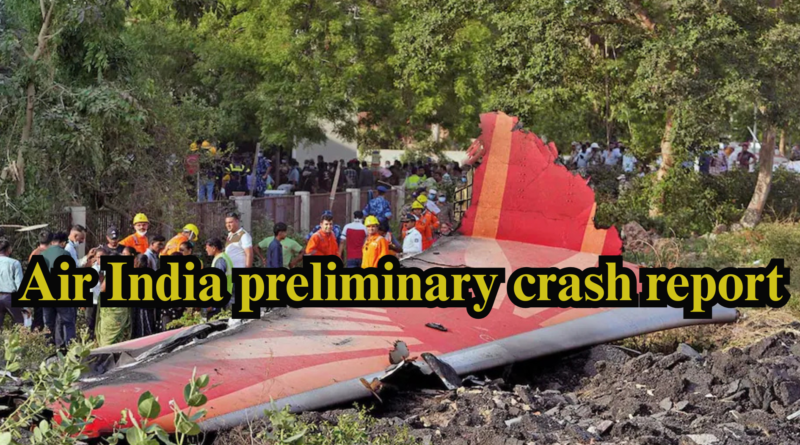Air India Preliminary Crash Report: Fuel Switch Failure Caused Tragedy
In a startling development, investigators have released the preliminary report into the crash of Air India Flight AI 171, which was en route from Ahmedabad to London when it went down, tragically claiming the lives of over 200 passengers and crew. According to the Directorate General of Civil Aviation (DGCA) and international aviation authorities involved in the probe, the aircraft experienced a catastrophic fuel system malfunction just moments before losing control. Specifically, the investigators have identified a failure in the automatic fuel tank switching system as a key contributing factor.
The report explains that the aircraft’s fuel management system did not properly switch from one tank to another, leading to a sudden imbalance in engine performance. As a result, one of the engines began to lose thrust due to fuel starvation, while the other continued to operate under strain. This asymmetrical thrust situation appears to have caused the aircraft to bank sharply, leading to a rapid descent from cruising altitude. Despite efforts by the cockpit crew to regain control, the aircraft ultimately crashed in a remote area near the Iranian border.
The cockpit voice recorder (CVR) and flight data recorder (FDR) provided critical insights. Investigators noted that the flight crew identified the fuel flow discrepancy approximately five minutes before the incident and began emergency procedures. However, the malfunction occurred too quickly for manual override procedures to be fully implemented. Pilots were heard urgently discussing the unexpected fuel pressure drop, and one can be heard calling for a manual cross-feed operation, indicating awareness of the problem but limited time to act.
Further scrutiny is being directed at the aircraft’s maintenance history. Air India Flight AI 171, a Boeing 787 Dreamliner, had recently undergone scheduled maintenance in Mumbai just a month prior. While no major issues had been flagged, investigators are now reviewing service logs, component replacement records, and recent software updates to determine whether any oversight or defect contributed to the incident. The manufacturer, Boeing, has also joined the probe and is cooperating fully with Indian and international authorities.
This crash, one of the worst in recent Indian aviation history, has triggered immediate responses from regulatory bodies. The DGCA has ordered a comprehensive review of fuel system protocols on all long-haul aircraft operating under Indian carriers. Meanwhile, Air India has grounded a portion of its Dreamliner fleet as a precaution and issued a safety advisory to all its pilots and engineering teams. A broader audit of automatic switching mechanisms is also underway across multiple global carriers.
Families of the victims continue to demand answers and justice. As the investigation progresses, more definitive conclusions are expected in the final report, due within six months. Meanwhile, international aviation authorities have stressed the importance of reinforcing training around fuel management emergencies and ensuring robust redundancies in aircraft systems. The tragedy has once again highlighted the delicate interdependence of automation and human decision-making in modern aviation.




